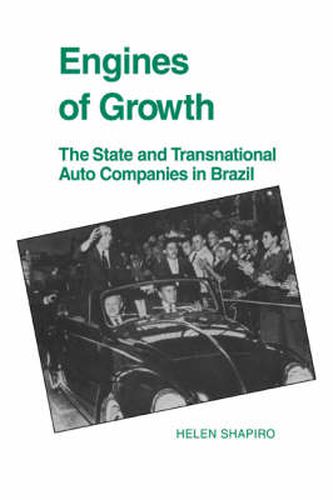Readings Newsletter
Become a Readings Member to make your shopping experience even easier.
Sign in or sign up for free!
You’re not far away from qualifying for FREE standard shipping within Australia
You’ve qualified for FREE standard shipping within Australia
The cart is loading…






In the 1950s, Brazil prohibited car imports and forced transnational auto companies either to abandon the market or manufacture vehicles within Brazil. Although current approaches to economic development would suggest that this type of industrialization policy would fail in the political-economic context of post-war Brazil, the plan was very successful. This book explains the economic and political motivations behind the plan and why Brazil relied on foreign firms to do the job. It documents the bargaining process between the Brazilian government and transnational firms, estimates the cost incurred by the government as a result of the plan, and provides new archival evidence that shows that firms would not have invested without government pressure. It argues that the current, polarized debate on the role of the state in economic development must become more nuanced, as the Brazilian auto case suggests that the effectiveness of state policy can vary greatly across sectors and over time.
$9.00 standard shipping within Australia
FREE standard shipping within Australia for orders over $100.00
Express & International shipping calculated at checkout
In the 1950s, Brazil prohibited car imports and forced transnational auto companies either to abandon the market or manufacture vehicles within Brazil. Although current approaches to economic development would suggest that this type of industrialization policy would fail in the political-economic context of post-war Brazil, the plan was very successful. This book explains the economic and political motivations behind the plan and why Brazil relied on foreign firms to do the job. It documents the bargaining process between the Brazilian government and transnational firms, estimates the cost incurred by the government as a result of the plan, and provides new archival evidence that shows that firms would not have invested without government pressure. It argues that the current, polarized debate on the role of the state in economic development must become more nuanced, as the Brazilian auto case suggests that the effectiveness of state policy can vary greatly across sectors and over time.